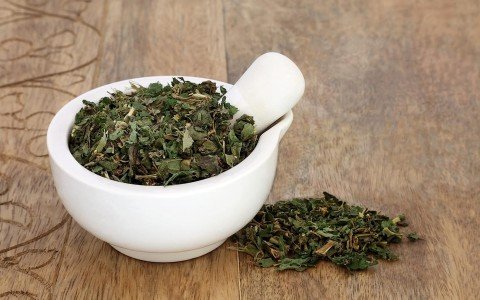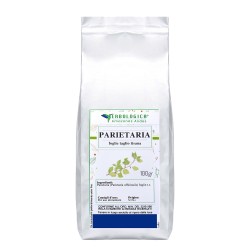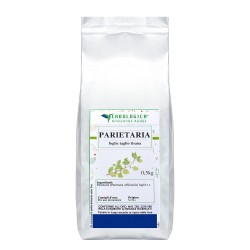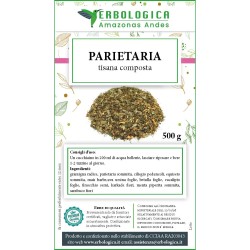
La parietaria pianta è una pianta erbacea che cresce spontaneamente in molte parti del mondo.
È stata utilizzata per secoli per le sue proprietà medicinali, tra cui la capacità di alleviare i sintomi dell'allergia e dell'asma.
In questo articolo, scoprirai tutti gli usi e i benefici della parietaria pianta per la salute.
Cos'è la parietaria pianta?
La parietaria pianta, nota anche come Parietaria officinalis, è una pianta erbacea annuale o perenne che cresce spontaneamente in molte parti del mondo, compresa l'Europa, l'Asia e il Nord America.
È stata utilizzata per secoli nella medicina tradizionale per trattare una vasta gamma di disturbi, tra cui allergie, asma, infiammazioni e infezioni delle vie urinarie.
La pianta contiene una serie di composti attivi, tra cui flavonoidi, tannini e alcaloidi, che conferiscono alla parietaria le sue proprietà medicinali.
Proprietà curative della parietaria pianta.
La parietaria pianta è conosciuta per le sue proprietà curative, tra cui la capacità di alleviare le allergie e l'asma.
Inoltre, la pianta è un diuretico naturale e può aiutare a ridurre l'infiammazione e le infezioni delle vie urinarie.
La parietaria è anche utilizzata per trattare la dermatite atopica e altre condizioni della pelle.
Grazie ai suoi composti attivi, la parietaria pianta è un'ottima scelta per chi cerca rimedi naturali per migliorare la propria salute.
La parietaria pianta è stata utilizzata per secoli nella medicina tradizionale per trattare una vasta gamma di disturbi.
La pianta contiene composti attivi come flavonoidi, tannini e alcaloidi che hanno proprietà antinfiammatorie, antiossidanti e diuretiche.
Grazie a queste proprietà, la parietaria è spesso utilizzata per alleviare i sintomi dell'asma e delle allergie, come la congestione nasale e la tosse.
Inoltre, la pianta può aiutare a ridurre l'infiammazione e le infezioni delle vie urinarie, migliorando la funzione renale e prevenendo la formazione di calcoli renali.
La parietaria è anche utilizzata per trattare la dermatite atopica e altre condizioni della pelle, grazie alle sue proprietà antinfiammatorie e lenitive.
In generale, la parietaria pianta è un'ottima scelta per chi cerca rimedi naturali per migliorare la propria salute.
Come utilizzare la parietaria pianta per la salute.
Ci sono diversi modi per utilizzare la parietaria pianta per migliorare la propria salute.
Una delle opzioni più comuni è quella di preparare un infuso con le foglie e i fiori della pianta.
Basta far bollire l'acqua e aggiungere la parietaria, lasciando in infusione per alcuni minuti.
Questo infuso può essere bevuto caldo o freddo, a seconda delle preferenze personali.
In alternativa, la parietaria può essere utilizzata come ingrediente in tisane e integratori alimentari.
Prima di utilizzare la parietaria pianta per la salute, è importante consultare un medico o un esperto di erboristeria per assicurarsi che sia sicura e appropriata per le proprie esigenze.
La parietaria pianta è conosciuta per le sue proprietà antinfiammatorie, diuretiche e antiallergiche.
Grazie a queste proprietà, la parietaria può essere utilizzata per alleviare i sintomi di diverse condizioni, come l'asma, le allergie, l'eczema e la cistite.
Inoltre, la parietaria può aiutare a ridurre l'infiammazione delle vie respiratorie e a migliorare la funzione renale.
Tuttavia, è importante ricordare che la parietaria può interagire con alcuni farmaci e può causare effetti collaterali in alcune persone.
Per questo motivo, è sempre consigliabile consultare un medico o un esperto di erboristeria prima di utilizzare la parietaria pianta per la salute.
Possibili effetti collaterali e precauzioni.
Anche se la parietaria pianta è considerata generalmente sicura, ci sono alcune precauzioni da prendere.
Ad esempio, le persone che sono allergiche alle piante della famiglia delle Urticaceae dovrebbero evitare di utilizzare la parietaria.
Inoltre, l'uso eccessivo della pianta può causare effetti collaterali come nausea, vomito e diarrea.
È importante consultare un medico prima di utilizzare la parietaria pianta se si sta assumendo farmaci o se si soffre di una malattia cronica.
Conclusioni e raccomandazioni.
In conclusione, la parietaria pianta ha diversi usi e benefici per la salute, ma è importante prenderne alcune precauzioni e consultare un medico prima di utilizzarla.
Se si decide di utilizzare la parietaria, è importante farlo in modo responsabile e non abusivo.
Inoltre, è sempre meglio utilizzare prodotti naturali come la parietaria solo dopo aver consultato un medico o un esperto in erboristeria.





